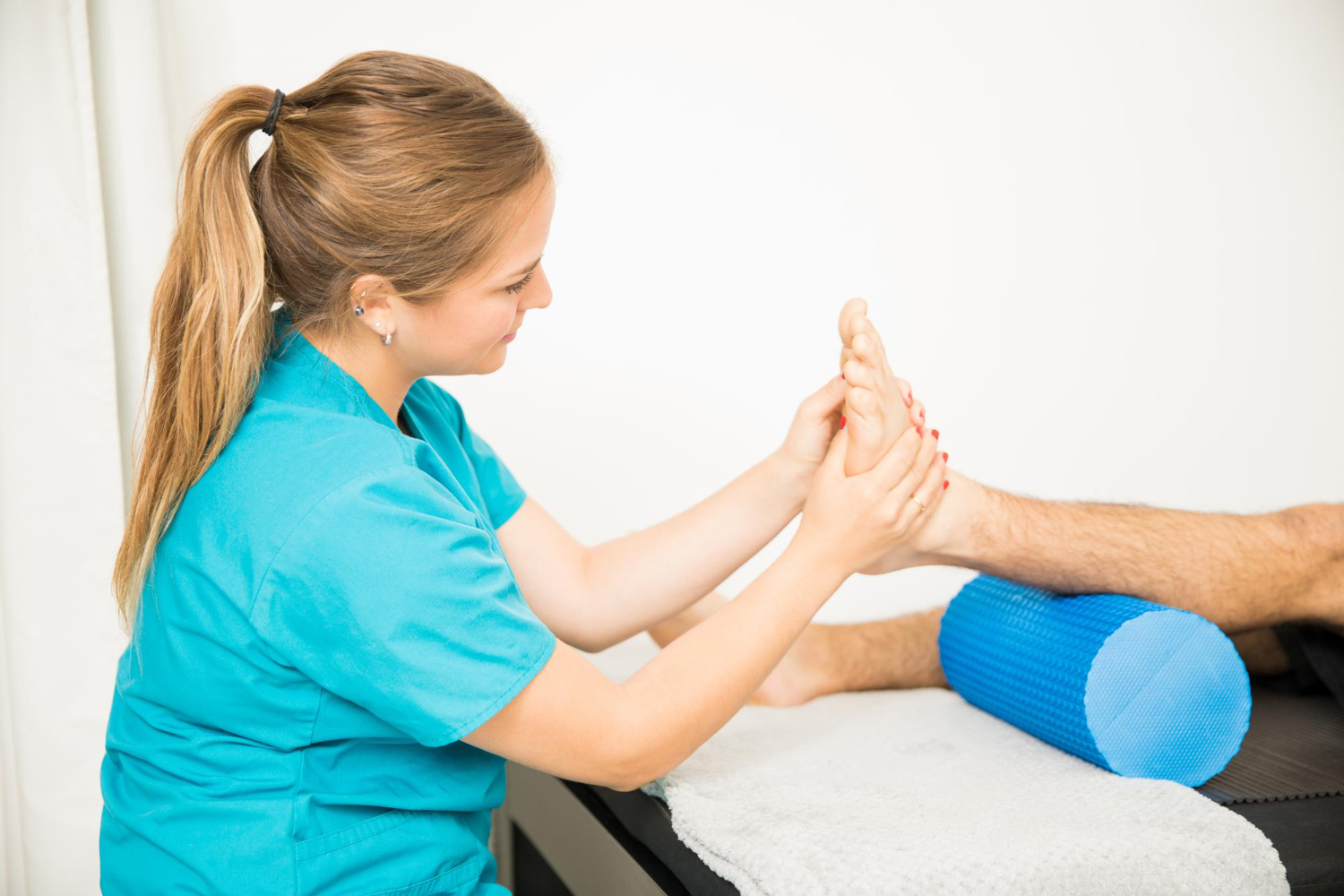The Benefits of Foot Care Training for Nursing Professionals

As healthcare providers, nursing professionals play a crucial role in the overall well-being of their patients. While they are well-trained in various aspects of medical care, the importance of foot health is often overlooked. Feet are the foundation of our mobility, and their well-being directly impacts a patient’s quality of life. Foot care training for nursing professionals is a valuable investment that brings forth a range of benefits for both patients and caregivers alike.
Understanding Foot Conditions and Their Impact on Patients
- Common Foot Conditions in Patients: Bunions, corns, calluses, ingrown toenails, plantar fasciitis, and diabetic foot ulcers are just a few of the common foot conditions that nursing professionals encounter in their patients. Understanding these conditions is vital for early identification and appropriate intervention.
- How Foot Issues Affect Patient Mobility and Quality of Life: Painful foot conditions can severely limit a patient’s mobility, leading to reduced independence and overall quality of life. Proper foot care can prevent these issues from escalating and provide relief to patients.
- Preventive Measures and Early Intervention: With proper training, nursing professionals can implement preventive measures and identify foot issues at an early stage, which can significantly reduce the risk of complications and improve patient outcomes.
The Role of Nursing Professionals in Foot Care
- Incorporating Foot Care into Daily Patient Care: Including foot care as a routine part of patient care can help identify any potential problems early on. Simple acts like regular foot inspections during daily patient care routines can go a long way in maintaining foot health.
- Identifying Foot Problems and Potential Complications: Nursing professionals trained in foot care are better equipped to recognize warning signs and symptoms of foot-related issues, allowing for timely intervention and prevention of more serious complications.
- Collaborating with Other Healthcare Providers for Comprehensive Foot Care: Proper foot care often requires a multidisciplinary approach. Nursing professionals who have undergone foot care training can effectively collaborate with podiatrists, physical therapists, and other specialists to ensure comprehensive foot health for their patients.
Benefits of Foot Care Training for Nursing Professionals
- Enhanced Patient Care and Comfort: When nursing professionals possess foot care expertise, they can offer more comprehensive care to patients, addressing not just their primary medical needs but also their comfort and well-being.
- Reduced Risk of Foot-related Complications: Early detection and appropriate foot care interventions can reduce the risk of complications such as infections, amputations, and mobility limitations, particularly in patients with chronic conditions like diabetes.
- Increased Mobility and Independence for Patients: By promoting foot health, nursing professionals can help patients maintain their mobility and independence, thereby enhancing their overall quality of life.
- Improved Wound Management and Healing: Foot care training equips nursing professionals to manage and dress foot wounds properly, facilitating quicker healing and reducing the risk of infections.
- Minimized Incidents of Falls and Injuries: Proper foot care contributes to better balance and stability, reducing the risk of falls and related injuries, especially in elderly patients.
Foot Care Techniques and Best Practices
- Proper Nail and Callus Care: Nail trimming and callus removal are essential aspects of foot care that nursing professionals should be adept at handling.
- Skin Inspection and Moisturization: Regular skin inspection helps identify potential issues like dryness, cracking, or skin infections, and proper moisturization can prevent these problems.
- Footwear Assessment and Recommendations: Nursing professionals can provide valuable advice on appropriate footwear to promote foot health and comfort.
- Techniques for Handling Diabetic Foot Care: Diabetic patients require special attention to foot care, as they are more susceptible to foot complications. Proper training enables nursing professionals to handle diabetic foot care effectively.
- Basic Foot Massage for Circulation and Comfort: Simple foot massage techniques can improve blood circulation and provide comfort to patients.
Comprehensive Foot Assessment
- Importance of Regular Foot Assessments: Regular foot assessments are crucial to promptly detect any changes or issues in a patient’s foot health.
- Step-by-Step Guide to Thorough Foot Evaluation: A systematic approach to foot assessment can ensure no critical details are overlooked.
- Documenting Foot Findings and Patient Progress: Accurate documentation of foot assessments and care provided allows for better monitoring of patient progress and continuity of care.
Special Considerations in Foot Care
- Foot Care for Elderly Patients: Elderly patients may have specific foot care needs, such as dealing with age-related foot conditions and mobility challenges.
- Addressing Foot Care Concerns in Patients with Diabetes: Diabetes can lead to severe foot complications, making specialized foot care training even more critical for nursing professionals.
- Handling Foot Issues in Patients with Neurological Conditions: Patients with neurological conditions may require extra care and attention to foot health due to reduced sensation or motor control.
Implementing Foot Care Practices in Healthcare Facilities
- Integrating Foot Care Training into Nursing Curriculum: Suggestions on how healthcare facilities can include foot care training in their nursing education programs.
- Creating Foot Care Protocols and Guidelines: Developing standard protocols and guidelines ensures consistency and efficiency in foot care across healthcare settings.
- Establishing Collaborative Foot Care Teams: Encouraging collaboration between nursing professionals, podiatrists, and other specialists to optimize foot care outcomes.
The Impact of Foot Care Training on Patients’ Mental and Emotional Well-being
- Enhanced Patient Satisfaction and Trust: Improved foot care can lead to higher patient satisfaction and foster a sense of trust in the healthcare team.
- Reduced Anxiety and Fear: For patients with foot issues, knowing that they are in the hands of skilled nursing professionals can alleviate anxiety and fear associated with foot-related problems.
- Promoting Patient Education: Nursing professionals trained in foot care can educate patients about foot health, prevention, and self-care, empowering them to take an active role in their well-being.
The Role of Foot Care in Preventing and Managing Chronic Conditions
- Managing Foot Complications in Diabetes: Foot care training equips nursing professionals to effectively manage foot complications in diabetic patients, preventing severe outcomes.
- Reducing Complications in Peripheral Artery Disease (PAD): Foot care plays a crucial role in preventing complications related to poor circulation in patients with PAD.
- Foot Health in Patients with Arthritis: Proper foot care can improve the comfort and mobility of patients with arthritis, reducing pain and enhancing their ability to perform daily activities.
Conclusion
In conclusion, foot care training for nursing professionals is a valuable investment that offers a range of benefits, both to patients and caregivers. Nursing professionals can significantly improve patient outcomes and enhance the overall quality of care provided by understanding common foot conditions, identifying potential issues early, and implementing appropriate foot care techniques. As foot health directly impacts a patient’s mobility and comfort, foot care training remains essential to comprehensive nursing education and professional development.
Are you a nurse looking to enhance your skills and make a significant impact on patient well-being? Discover our specialized foot care courses for nurses! Join our nurse foot care training programs to become a proficient foot care nurse. Take the first step towards improving patient outcomes and providing comprehensive care. Enroll now and unlock new opportunities in healthcare!



